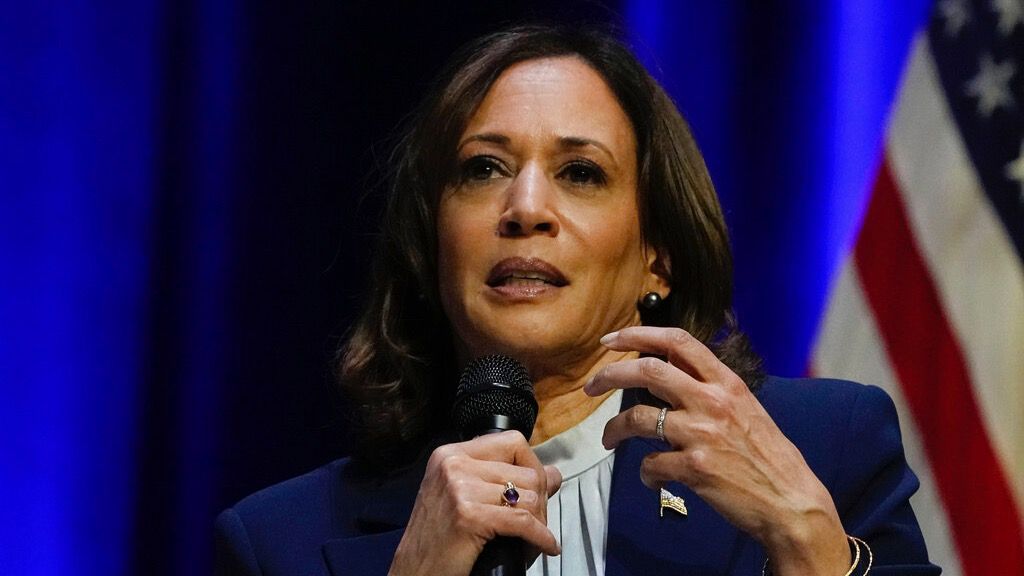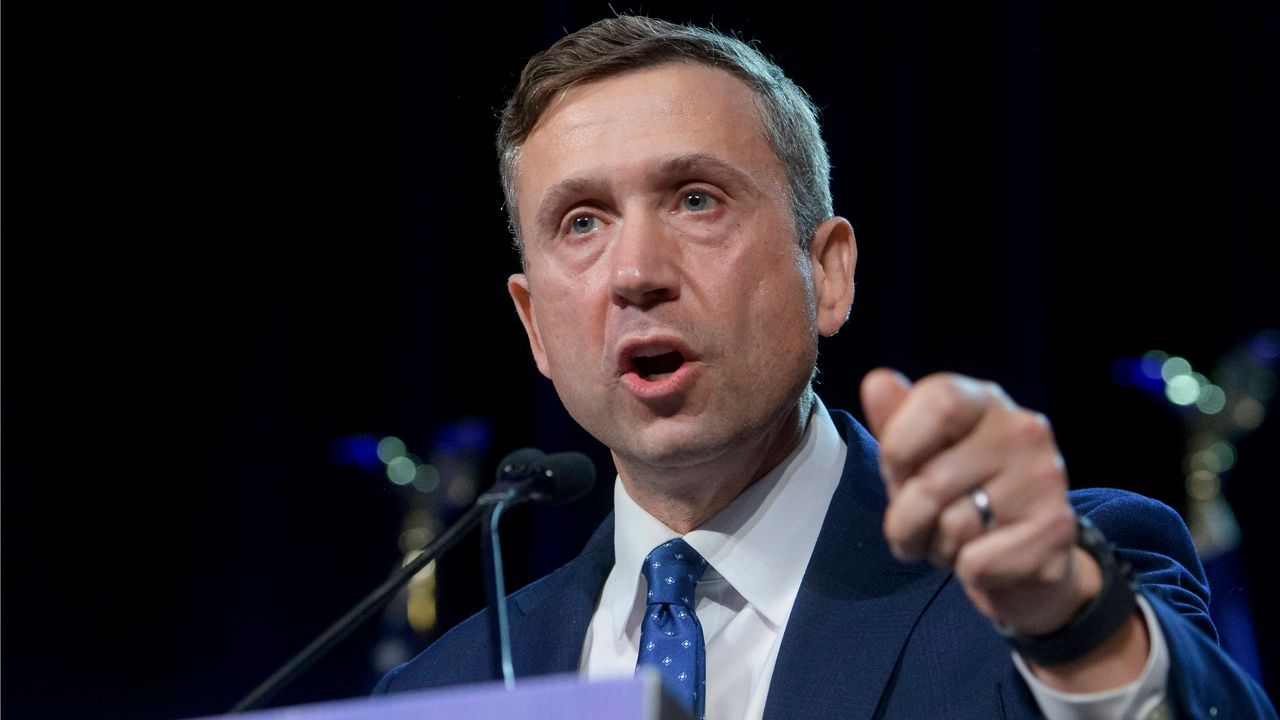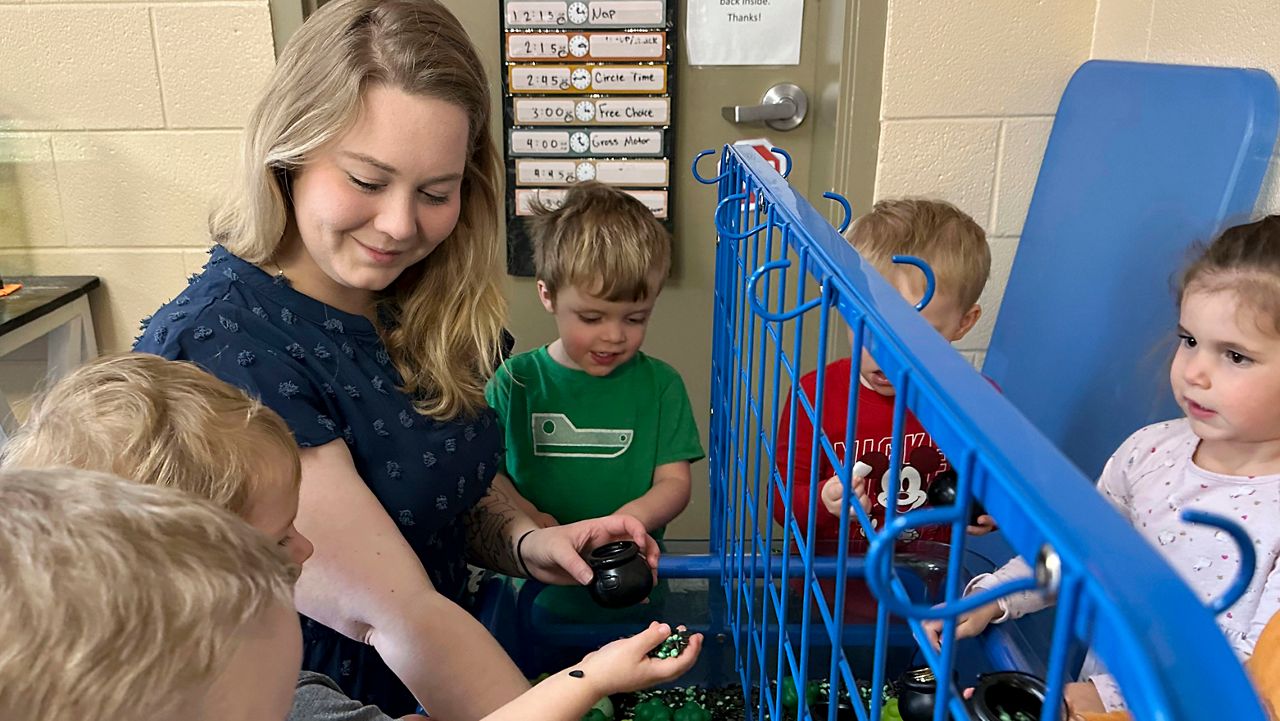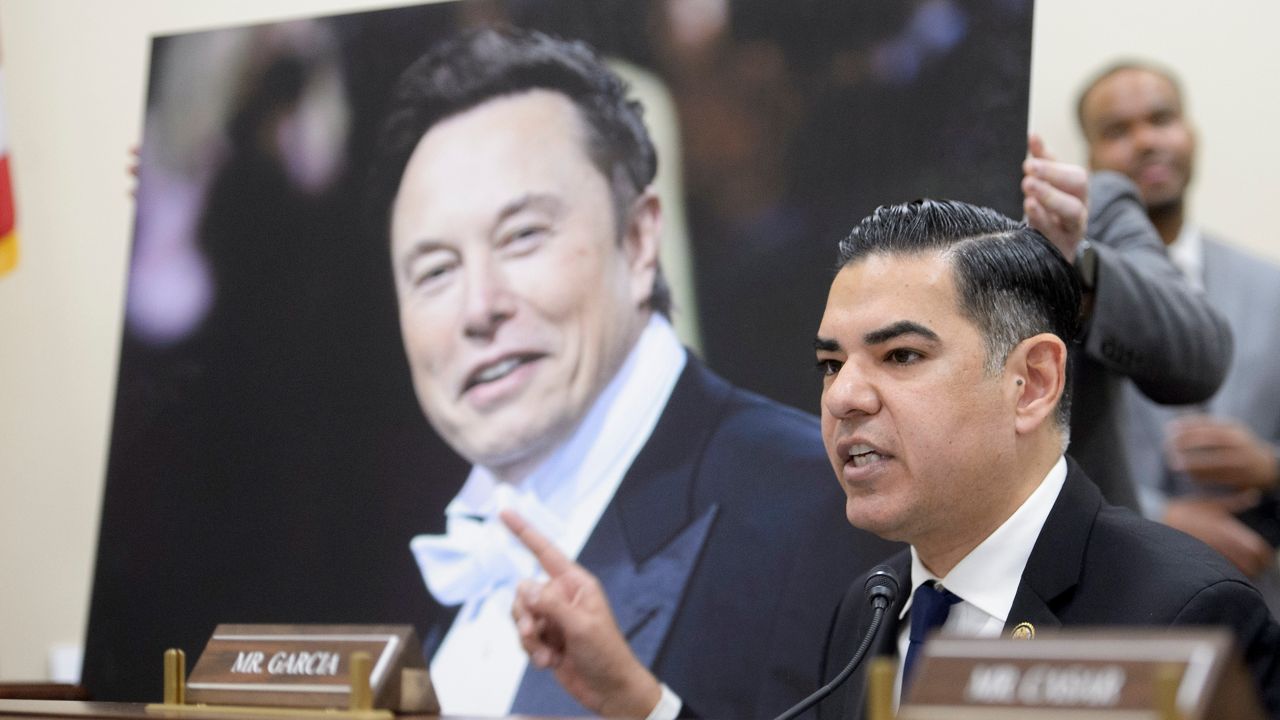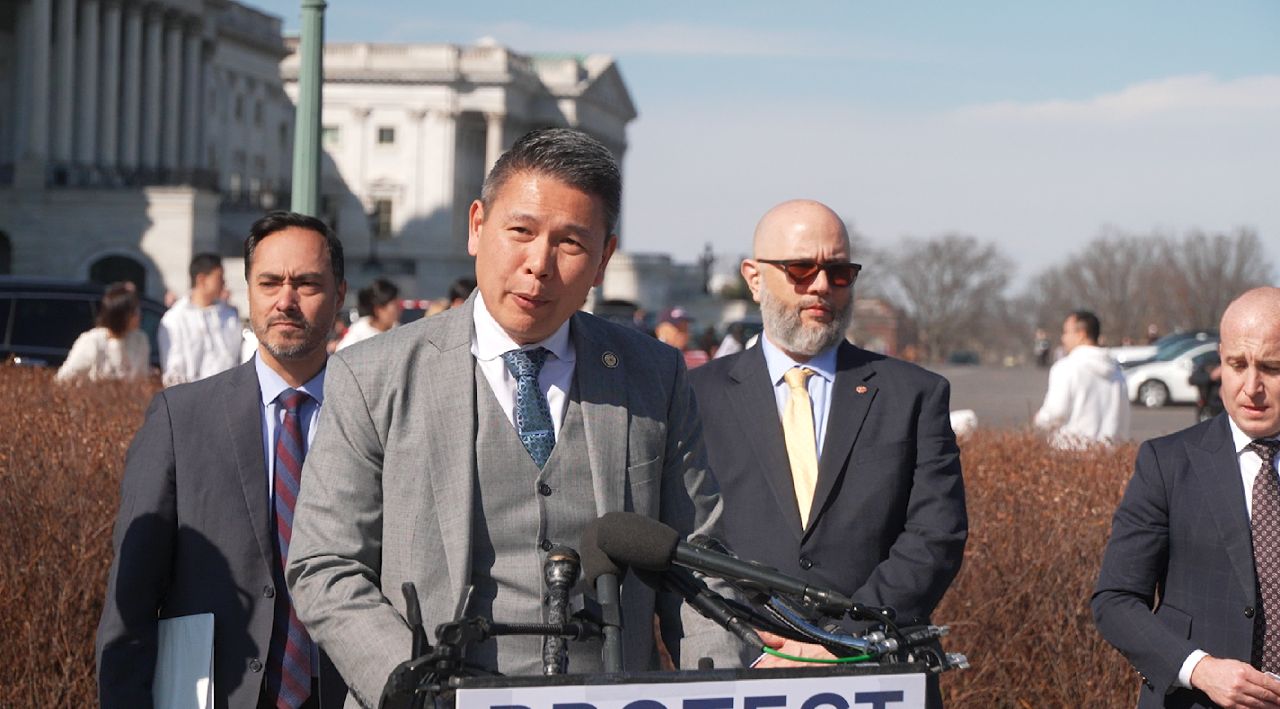Vice President Kamala Harris — a self-professed "water policy geek" — took part in a conversation on the White House’s efforts to combat climate change and build a “clean energy economy” at Georgia Tech in Atlanta on Wednesday.
“I grew up with the issue in many ways, but it is, I think, one of the most pressing issues of our time,” Harris said. “Now with our administration prioritizing what we need to do around solutions, let’s just jump in and jump forward, but do it in a way that it is inclusive."
"We are asking the communities that are affected to lead, and not telling them what we’re going to do for them," she continued.
The “transformational moment” of climate change can only be achieved when Americans move toward solutions together, as well as a ”whole-of-government approach” to “understanding the excitement that we should all feel about the opportunity of this moment.”
“I think about it in the context of establishing a new industry, a clean energy economy,” Harris said, launching into her holistic viewpoint of how such an economy would change the job prospects of the students in the Georgia Tech audience, as well as the effects on other nations, such as those in the Caribbean, who are already suffering the effects of disrupted climate patterns.
“We sneeze, and they catch a cold — you look at the biggest emitters of greenhouse gas emissions, and they are the most industrial, and the United States is one of them,” Harris said. “Then you look at the Caribbean nations, for example, which are not the biggest emitters … but are paying the biggest price,” owing to land erosion and the impacts of extreme weather events on tourism.
Harris repeatedly called to mind the intersections between climate action and social justice, noting that the communities most often affected by poor environmental conditions are also at a disadvantage in responding to them, such as low-income communities living in areas where air pollution is worst, or in areas where clean water isn’t accessible.
The $1.2 trillion Bipartisan Infrastructure Law, signed by President Joe Biden last year, contains roughly $50 billion in clean water initiatives, including $15 billion in loans and grants dedicated for states to replace lead pipes and service lines.
“You look at Flint, Michigan, and you look at so many other places have suffered, where our babies have been drinking water that is toxic, and it impacts their health and their ability to learn,” Harris said. ”This is what I mean abou the intersections, because it’s an environmental issue, but it is also an educational justice issue and an equity issue around education and a public health issue.”
The conversation, led by Georgia Tech Earth and Atmospheric Sciences professor Dr. Isaiah Bolden and University of Georgia atmospheric sciences program director Dr. Marshall Shepherd, granted Harris an opportunity to talk up the White House’s infrastructure, climate and technology investments, while also lending itself to pet policy plank.
“OK, so, water policy,” Harris said, table-setting for a three-minute response to issues she cares most about.
Clean water is a right that all people should have access to, Harris said, and extreme drought taking place the world over is a humanitarian issue and a national security issue.
“It doesn’t take much to think about the fact that if people don’t have water where they live, they will lave where they live, and they will go to other places,” Harris said. “And if we think about this in a global perspective, they will invariably go to places that speak a different language and pray to a different god … and then you’re probably looking at the beginning of conflict.”
Harris jumped from idea to idea, touching on diversifying water policy with focuses equal focuses on conservation, recycling, rainwater capture and storage, flooding, desalination, and the labor investments needed to make it all happen — an idea that she turned from solely water policy, but the rest of the clean energy economy she envisions.
“I know we have students from so many of the universities and colleges in the area, and I really do see this as an area that is so vast in terms of the skills that will be required,” Harris said. “This is the thing … about what’s really exciting about this moment. There’s gonna be a lot of new jobs, there’s gonna be a lot of new work — we’re talking about a new approach, a new industry, and we need you guys there to do the translating that is necessary for people to be clear on the concept.“




